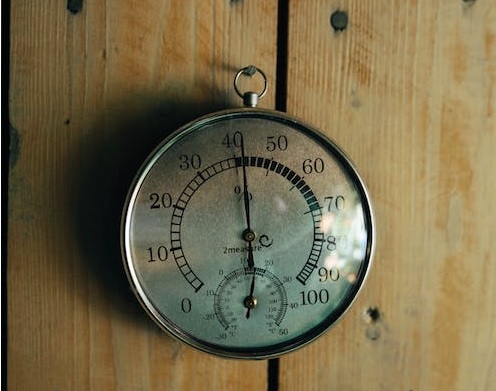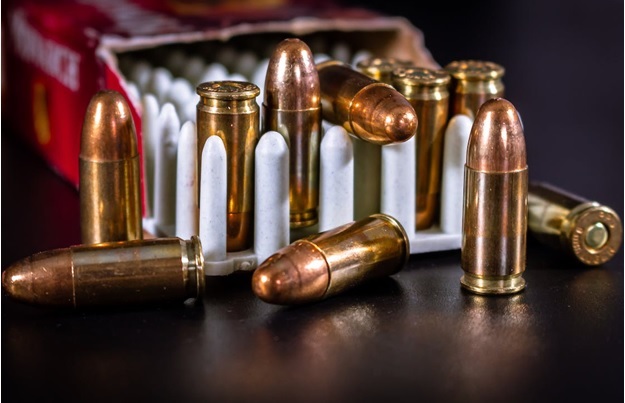Before you stick that 9mm ammo box (50) up on the shelf and call it a day, give some thought to storage conditions.
Just like you wouldn’t store your guns in a dank basement or in a muggy attic, you should also take some time to ensure you’re storing ammo properly.
Granted, very old ammo can be fired with impressive results, but that’s only if it’s stored properly.
Ammo has the potential to keep just about as long as you need, provided you store it somewhere out of extreme heat, away from wild temperature shifts, and in as dry a location as possible.
Here’s what you need to know.
Three Things to Avoid: Heat, Humidity, and Temperature Fluctuations
There are three basic things you need to avoid if you’re going to store or stockpile ammo at home for long periods of time - and who wouldn’t, considering how hard it’s been to get ammo the past few years.
These three things are extreme heat, extreme humidity, and wild shifts in temperature. Let’s break them each down.
Extreme heat wreaks havoc on ammo. In a nutshell, high heat can potentially cause changes to the chemistry of the primer and propellant charge.
So what’s the right temperature? According to SAAMI, exposure to temperatures above 150℉ should be avoided unequivocally. The ideal range for storing ammo is between 55℉ and 85℉.
Damage due to temperature can vary. If the primers are adversely affected or the propellant breaks down, you can face problems associated with unreliable ignition.
In other cases, accuracy will be affected. Once the temperature reaches about 150℉, the nitrocellulose (the primary chemical constituent to most modern smokeless powders) starts to break down and seep out of the cartridge.
Loss of potency ensues. While the ammo may still fire after being mildly degraded by temperature, case pressures and ballistic energy will drop, which can cause issues associated with stopping power, feeding, trajectory, and perhaps worst of all, accuracy.
But there’s more to this. Not only should you never expose your ammunition to temperatures in excess of 150℉, you should also protect your ammo from wild swings in temperature.
If possible, store your ammunition where it will not experience wide swings in temperature; at the very least, protect it against rapid shifts in temperature. Mild seasonal shifts that don’t occur overnight are fine but you don’t want to expose your ammo stockpile to a rapid shift.
That knocks out two of three considerations and brings us to moisture, which is perhaps the most nefarious ammo-killer of all.

Humidity is something to be avoided at all costs. Just like it can and will ruin your guns, it can and will ruin your ammo.
Over time, exposure to high humidity levels will accelerate the interaction between the oxygen in the air and the metal that constitutes the cartridge case, resulting in corrosion. Corrosion changes the mechanical properties of ammunition cartridges can weaken and warp the cartridge, too, changing its dimensions.
As you know, cartridges must be a precise size to fit in the chamber. Changing the dimensions and properties of a cartridge can render it impossible to load and fire.
Corrosion affects bullets, too. Pitting or corrosion of a bullet’s jacket can cause a monumental deterioration in reliability and accuracy.
In extreme cases, moisture can be absorbed by primers and powders, causing failures to fire, hang fires, and sharp declines in ballistic performance.
Best practices are to store your ammo (and your guns) in a location that experiences controlled humidity. The ideal humidity levels are between 30% and 50%, as this dry air will help slow corrosion.
Ammo Cans and Containers
In general, what you store your ammo in is less important than the conditions to which you subject it.
That is to say, ammo stored in the original box will be fine in a few years, provided it was stored somewhere dark, dry, and cold.
Ammo stored in the original cardboard carton in ideal conditions will hold up much better than ammo stored in a metal can in a humid basement.
That said, there are some metal ammo cans that have nearly airtight, watertight seals that can shut out moisture and which, to a degree, can protect against swings in temperature. So consider that.
You also have the option of storing your ammo in the original box, but inside of a plastic or a metal ammo can with sealed gaskets that will add another layer of protection.
For reloaders, we also sell 9mm ammo boxes (50 rounds) that can be used for storing freshly loaded (or reloaded) ammo. But the same storage considerations apply.
The most important thing you can do is make sure you are storing your ammo somewhere that it will be shielded against these conditions that cause deterioration in quality.
Ammo Storage Suggestions: Where to Store (Plus Tips)

All in all, the best thing you can do is store your ammo somewhere dark, dry, and cold, in a container that will protect your ammo against moisture and, to a degree, against shifts in temperature.
- Avoid storing ammo in areas like basements, crawl spaces, attics, and garages, where temperature can shift rapidly and which usually experience perpetually humid conditions.
- Do not store ammo in your trunk, vehicle, or outside your home (for long periods of time).
- Invest in a dehumidifier and keep it in the safe (or room) where you store your ammo.
- Use a hygrometer to monitor humidity levels.
- Avoid handing ammo cartridges unnecessarily. Skin-on-brass contact transfers oil and moisture that can hasten corrosion. (Keeping your ammo in the original container not only prevents unnecessary handling but keeps your ammo organized). If you reload, once you’re finished and have packed your ammo (such as into a 9mm ammo box [50]) don’t handle it again or dump it into a bucket. Leave it be.
- Store your ammo either in the original boxes or in ammo cans that specifically are rated to protect against temperature and humidity.
- Don’t store your stockpile all in one location. If it floods or experiences a sharp temperature shift, you could lose the whole lot in one go.
Keeping to the advice in this post should help your ammo keep for longer, and will protect your investment.

